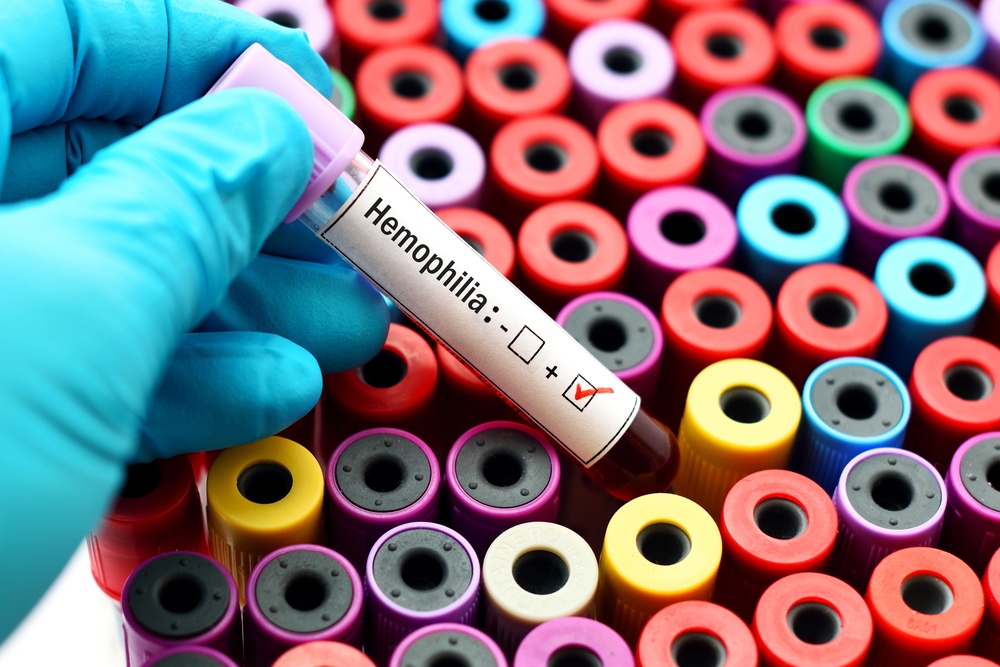My Hate-Love Relationship with Hemophilia
Written by |

I don’t think anyone likes having a chronic disease. I have good days, and I have bad days. Thankfully, the good days outnumber the bad ones. There are days when I tolerate having hemophilia, days when I can step back and see the gifts that have come from unexpected places, and days when I hate having hemophilia.
It was one year ago that I really hated hemophilia — like never before. It was the first time since my official diagnosis that I despised living with this chronic condition.
Surgery and hemophilia
I tolerated hemophilia when I had major surgery (total hysterectomy, oophorectomy, and sacral colpopexy), during which I received the proper factor VIII that I needed. The procedure felt so safe and empowering. I came through well, and the initial healing went faster than with my two previous, less serious surgeries (laparoscopic ovarian cyst removals), when I received no factor VIII replacement. I was even able to stop factor infusions after 11 days.
My healing was going great — until it wasn’t. I later learned that three weeks post-surgery is often when stitches dissolve or loosen. In some patients, it can cause light spotting. But I started bleeding a lot, soaking pads every 30 minutes. This meant rushing to a local rural hospital, far away from my hemophilia treatment center. The hospital is too small to stock the meds I need, so, thankfully, I have my own supply.
Factor VIII
I was thankful that, despite my hand shaking violently, I was able to stick my vein on the first try and get factor VIII into my body before heading to the emergency room. Yet, in that moment, I hated hemophilia. I was bleeding, and it was not under control. The factor I took was not an immediate cure, and I would continue to bleed for hours. Eventually, however, the bleeding slowed down, and continuing doses of factor VIII helped to stabilize it.
When I was bleeding three weeks post-surgery and did not know from where or why, I abhorred hemophilia. When I was rushing to the emergency room and praying it was nothing too serious, I loathed hemophilia. I was scared. Terrified.
The emergency room staff was amazing. They understood the seriousness of a person with hemophilia bleeding post-surgery. The nurses made sure I was OK and honored the fact I had my own meds with me that I needed to use. The on-call emergency room physician spoke with the doctors and surgeons connected with my hemophilia treatment center. They listened. I was able to have a peripheral IV line inserted so I could continue to self-infuse at home without worrying that I would miss my veins.
Diagnosis
I also disliked hemophilia when I struggled for years to get a diagnosis within a medical community that had deeply embedded beliefs that only men have hemophilia. The fight for diagnosis can take years for so many women. These women know they carry hemophilia and bleed abnormally, but are not believed when they say there is a connection.
Blessings
Even though I sometimes hate hemophilia, I deeply understand that it is in my DNA and has been for generations. Hemophilia not only defines part of who I am, but also so many people I love dearly. As I increased my hemophilia advocacy work, I have been embraced by a new family.
I have met tons of amazing people from all walks of life. Some of the individuals are not ones I would normally gravitate toward. However, we are united by our hemophilia bond. The blood connection we share is thick. I treasure the network I have with my blood sisters and blood brothers. Their presence in my life is indeed one of the greatest gifts hemophilia has given me. Without hemophilia, I would not know them, and my life would not be as rich.
The times I’ve hated hemophilia have created an immense appreciation for the moments when my health is strong. I am thankful to my hemophilia treatment center, the Hemophilia Foundation of Michigan, as well as the Hemophilia Federation of America, The Female Factor, and countless additional organizations that work to bring individuals with hemophilia together to create community and encourage advocacy and empowerment.
I am so very grateful for my blood sisters and blood brothers. They remind me in the most trying of times that it’s OK to hate hemophilia — and that life usually gets better. We cry and smile and laugh together, and are so pleased that we are in each other’s lives, that we are family. I love hemophilia for bringing me into this community.
***
Note: Hemophilia News Today is strictly a news and information website about the disease. It does not provide medical advice, diagnosis, or treatment. This content is not intended to be a substitute for professional medical advice, diagnosis, or treatment. Always seek the advice of your physician or another qualified health provider with any questions you may have regarding a medical condition. Never disregard professional medical advice or delay in seeking it because of something you have read on this website. The opinions expressed in this column are not those of Hemophilia News Today or its parent company, Bionews Services, and are intended to spark discussion about issues pertaining to hemophilia.



Leave a comment
Fill in the required fields to post. Your email address will not be published.